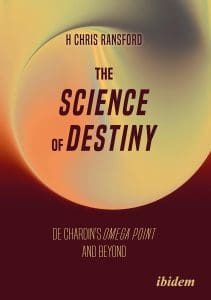About The Science of Destiny
Until recently, biological lives were said to be the end product of a series of chemical accidents, the current culmination by happenstance of a long chain of random, mechanistic chemical events. But life is information, and the new physics shows that there is much more to information than was once thought. Life may thus be richer than mere dissipative structures, and therefrom the destiny of sentient beings more complex than that of mere temporary structures.
Should the universe not be entirely meaningless and blind, what does it say about destiny? And why are so many destinies so tragic?
Buy the book, and follow the author on social media:
Author Bio:
H Chris Ransford was a tutor and Research Fellow at the University of Melbourne and at Monash University (Australia), a guest academic at KIT (Karlsruhe Institute of Technology) in Germany on a DAAD scholarship, and also holds a French ‘Grande Ecole’ degree (INPG/Phelma). He also published “The Far Horizons of Time: Time and Mind in the Universe” (de Gruyter 2015), “God and the Mathematics of Infinity” (ibidem Press 2017) , “In Search of Ultimate Reality: Inside the Cosmologist’s Abyss” (ibidem Press 2020) and ‘You Are Fundamental’ (2022). He has also published a number of peer-reviewed articles on themes of eschatology and ultimate meaning, including a chapter in Szymon Wróbelʼs Anthology “Atheism Revisited” (Palgrave Macmillan, 2020).
